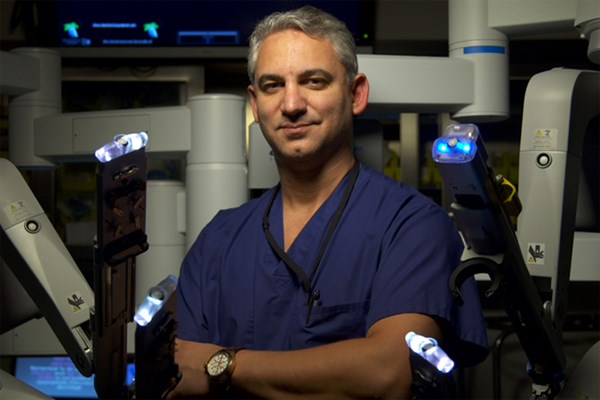New York, NY, Aug. 20, 2013 (GLOBE NEWSWIRE) -- New York, NY - Two separate prostate cancer studies highlight the risks associated with androgen deprivation therapy (ADT) for both aggressive prostate cancer and low risk prostate cancer. The first, from Finland, demonstrated a significant association between long-term use of ADT and subsequent hip fracture. The second, in the United Kingdom, found prostate cancer hormone therapy to increase risk of kidney failure by two-to-three times in men with aggressive prostate cancer.
http://www.globenewswire.com/newsroom/prs/?pkgid=17463
While prostate cancer hormone therapy brings expected side effects such as loss of libido and reduced male characteristics, potential damage to kidney function and bone health are far more serious. Dr. David Samadi, Chairman of Urology, Chief of Robotic Surgery at Lenox Hill Hospital and Professor of Urology at Hofstra North Shore-LIJ School of Medicine, advises cautious use of ADT, only after robotic prostate surgery or radiation therapy.
"These studies further my hesitation about ADT. In most cases, hormone therapy is best considered when all other prostate cancer treatment options are exhausted," said Dr. Samadi. "When we look at these two studies, we're reminded of the potential for more widespread damage to men with both low and high risk disease."
Reducing male hormone levels through androgen deprivation therapy or androgen suppression therapy starves prostate cancer cells in the hopes of shrinking or temporarily slowing the growth of prostate cancer tumors. Cancer Treatment-Induced Bone Loss (CTIBL) and bone weakening are widely proven results of androgen deprivation therapy.
The 10-year Finland study reviewed bone health in men with and without prostate cancer. They found that nearly of quarter of prostate cancer hip fracture patients had previously been, or were currently being, treated with ADT for low-risk prostate cancer. Findings are available in the Scandinavian Journal of Urology, July 18, http://informahealthcare.com/doi/abs/10.3109/21681805.2013.813066?prevSearch=allfield%253A%2528hip%2Bfracture%2Band%2Badt%2529&searchHistoryKey.
Separately, the UK study focused on the more common application of ADT: advanced, though non-metastatic prostate cancer. In reviewing a total of 10,250 newly diagnosed prostate cancer patients, researchers found a significant association with increased risk of acute kidney injury (AKI). Findings were published in The Journal of the American Medical Association, July 17,
http://jama.jamanetwork.com/article.aspx?articleid=1713592.
"I'm troubled by the volume of newly diagnosed ADT patients in each of these studies," said Dr. Samadi. "The potential for renal function damage and bone loss should be alarming to patients considering ADT, particularly as a first line of defense against prostate cancer. Robotic prostate removal and subsequent hormone therapy, if needed, can be far less damaging to the patient as a whole."
Dr. Samadi leads a comprehensive team of prostate cancer treatment experts at the Lenox Hill Hospital Prostate Cancer Center in New York City.
A photo accompanying this release is available at:
http://www.globenewswire.com/newsroom/prs/?pkgid=20583
